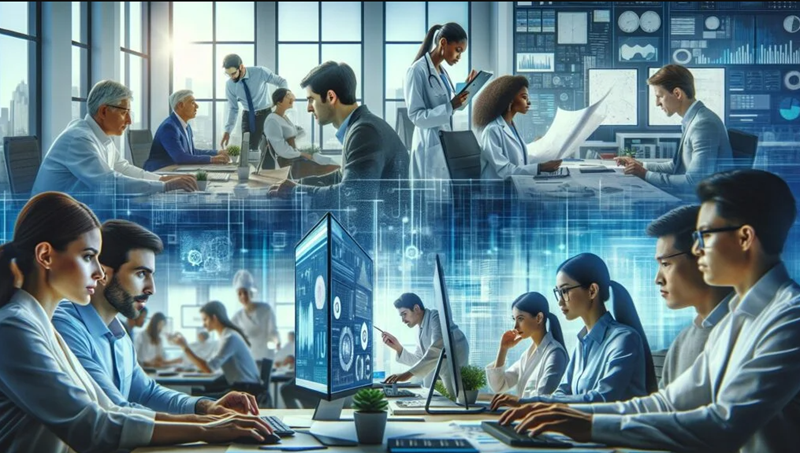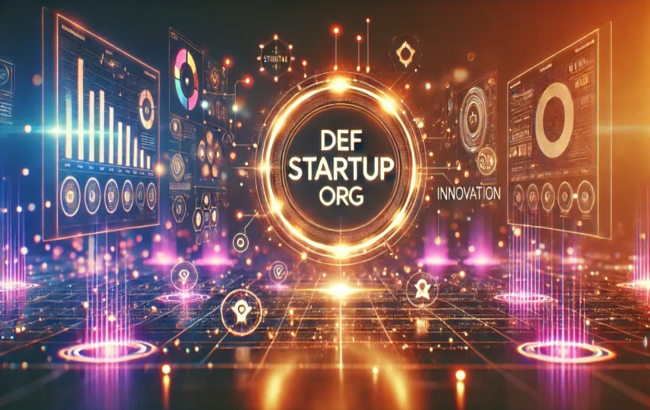Artificial Intelligence (AI) is no longer just a futuristic concept, it’s already here and it’s changing the way we work. From manufacturing to retail, AI and automation are being adopted at an unprecedented rate, and it’s having a significant impact on the job market. But before you panic and start stocking up on canned goods for the impending robot uprising, let’s take a closer look at how AI is affecting the job market.
On one hand, AI and automation have the potential to increase efficiency and productivity, and lead to new job opportunities. But on the other hand, they also have the potential to displace jobs and require workers to reskill and upskill. As AI and automation continue to be adopted in the workplace, it’s important to consider both the benefits and the risks. In this article, we will dive into the ways in which AI and automation are changing the job market, and the impact they’re having on different industries, small businesses, and the gig economy. We will also explore the potential implications of AI and automation on the future of work, including the role of AI in creating new jobs and the potential for a universal basic income. With a good sense of humor and a dash of sarcasm, we will also address the importance of ethical considerations and regulations, and the need for government and private sector investment in reskilling and upskilling.
The impact of AI on jobs
The impact of AI and automation on jobs is a topic that has been widely debated, and for good reason. Automation has the potential to displace jobs and require workers to reskill and upskill. However, it’s important to note that not all jobs are equally at risk of being automated. Jobs that involve repetitive tasks or that can be easily standardized are more likely to be automated, while jobs that involve creativity, critical thinking, and human interaction are less likely to be automated. But let’s not sugarcoat it, AI and automation will have an impact on jobs, and some jobs will be displaced.
It’s important to remember that automation has been a constant throughout history, and it has always led to the creation of new jobs. However, it’s important for governments and private sector to invest in reskilling and upskilling programs to help workers adapt to the changing job market. In short, AI and automation will change the job market, but it’s not all doom and gloom. It’s important to consider both the potential benefits and risks, and to invest in reskilling and upskilling programs to help workers adapt to the changing job market.
The impact of AI on industries
The impact of AI and automation on different industries is a topic that deserves attention, as it varies from one industry to another. In manufacturing, for instance, AI and automation are being used to improve efficiency and productivity, and to reduce the cost of production. This is leading to increased competitiveness, but also, to job displacement and the need for reskilling and upskilling. In retail, AI and automation are being used to improve customer service, and to automate tasks such as inventory management. This is leading to increased efficiency, but also to job displacement and the need for reskilling and upskilling.
In healthcare, AI and automation are being used to improve diagnostic accuracy and efficiency, to assist medical professionals in the diagnostic and treatment process, and to speed up the process of medical research. This is leading to improved patient outcomes, but also to job displacement and the need for reskilling and upskilling. In summary, the impact of AI and automation on different industries is mixed, and it varies from one industry to another. It’s leading to increased efficiency and productivity, but also to job displacement and the need for reskilling and upskilling.
The impact of AI on small businesses
The impact of AI and automation on small businesses is a topic that is often overlooked, but it’s an important one. Small businesses are the backbone of many economies, and they are being impacted by AI and automation in various ways. One of the ways small businesses are being impacted is through the adoption of technology. Small businesses are under pressure to adopt AI and automation to stay competitive, but this can be a challenge for those with limited resources. This requires small businesses to invest in digital literacy, to ensure they can make the most of the technology.
Another way small businesses are being impacted is through the need to reskill and upskill their workforce. As automation takes over repetitive tasks, small businesses need to ensure that their workforce can adapt and take on new roles. This requires investment in reskilling and upskilling programs. In short, AI and automation are impacting small businesses in various ways, including the adoption of technology, and the need for digital literacy and reskilling and upskilling. It’s important for governments and private sector to support small businesses in these areas, to ensure they can adapt and thrive in the changing job market.
The impact of AI on the gig economy
It’s becoming increasingly relevant as the gig economy continues to grow. The gig economy is being impacted by AI and automation in various ways, including the growth of online platforms. On one hand, AI and automation are being used to improve the efficiency and productivity of online platforms, making it easier for gig workers to find work and for businesses to find gig workers. This is leading to increased opportunities for gig workers. On the other hand, the use of automation and AI in online platforms may also lead to job displacement, as some tasks can be automated.
Furthermore, gig economy workers, who are often considered as independent contractors, are not protected by the same labor laws and benefits as traditional employees, which could put them at a disadvantage as jobs are being replaced by automation. In summary, the impact of AI and automation on the gig economy is mixed, and it’s leading to increased opportunities, but also to job displacement and the need for gig workers to adapt and reskill. It’s important to consider both the benefits and the risks, and to ensure that gig workers are protected by labor laws and benefits, as the gig economy continues to grow.
The impact of AI on the future of work
The impact of AI and automation on the future of work is a topic that is gaining more attention as technology continues to advance. It’s clear that AI and automation will shape the future of work in various ways. One of the ways is the role of AI in creating new jobs. As automation takes over repetitive tasks, it will create new opportunities for jobs that involve creativity, critical thinking, and human interaction. This could lead to new job opportunities in areas such as data analysis, AI development, and machine learning.
Another way is the potential for a universal basic income. As automation takes over jobs, it could lead to an increase in unemployment, which could require new forms of income support. Universal basic income is one solution that has been proposed to address this issue. In summary, AI and automation will shape the future of work in various ways, including the role of AI in creating new jobs and the potential for a universal basic income. It’s important to consider both the benefits and risks, and to invest in reskilling and upskilling programs to help workers adapt to the changing job market.
Conclusion
AI and automation are having a significant impact on the job market, and it’s important to consider both the potential benefits and risks. AI and automation have the potential to increase efficiency and productivity, and lead to new job opportunities, but they also have the potential to displace jobs and require workers to reskill and upskill. Different industries are being impacted in various ways, from manufacturing to retail, and healthcare.
Small businesses are also being impacted by the adoption of technology and the need for digital literacy. The gig economy is being impacted by the growth of online platforms and the future of work. The future of work will be shaped by AI and automation, including the role of AI in creating new jobs and the potential for a universal basic income. It’s important for government and private sector to invest in reskilling and upskilling programs to help workers adapt to the changing job market, and to ensure ethical considerations and regulations are in place.



